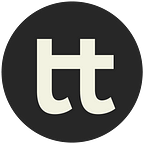The early days of CSOs
The Hewlett Foundation began its work in Mexico in 1997, a particularly critical year for the country. It was the first time that the historically powerless opposition won the majority in the Mexican Congress against the hegemonic party, PRI. This political event was the prelude to the eventual presidential win in 2000 by the main opposition party, the Partido Acción Nacional (PAN). It was during this period in Mexican history that many demands and changes were formulated and developed, including transparency and accountability.
This political zeitgeist gave momentum to previously unheard-of levels of citizen participation. During these years CSOs like the Instituto para la Competitividad (IMCO) and Transparencia Mexicana (TM) were created, and others like Centro de Investigación para el Desarrollo (CIDAC) were expanded.
President Ernesto Zedillo’s administration opened up to the Mexican CSOs by establishing dialogues and facilitating opportunities to influence federal public policies and agendas. There was an emphasis on strengthening CSOs by establishing funds and promotion for citizen participation. A few examples of these efforts took place in the ecological and electoral agendas, such as the collaboration between the government and CSOs creating the first policy of self-management for protected natural areas. In addition, the electoral reform of 1996 not only allowed truly competitive elections at the national level but also permitted the mass participation of the common citizen in the electoral process by admitting autonomous management and citizen councils.
